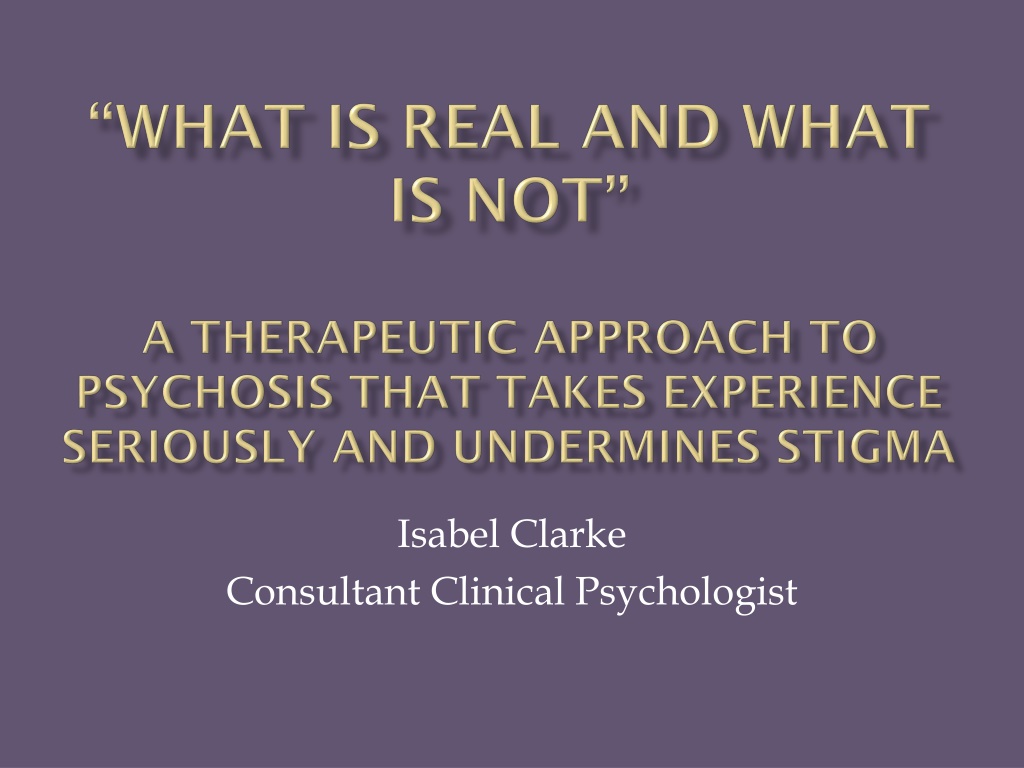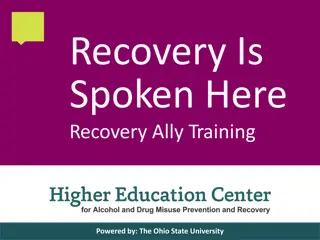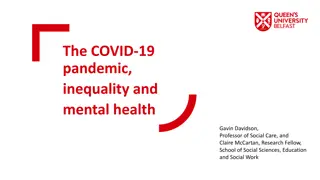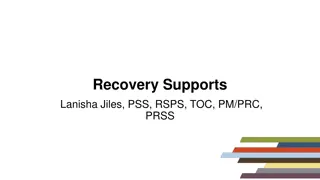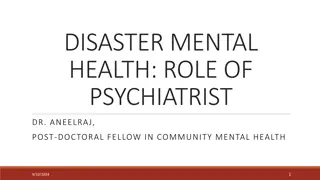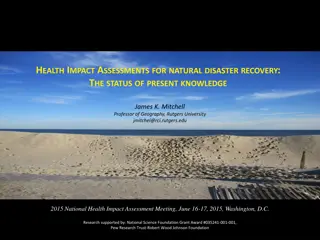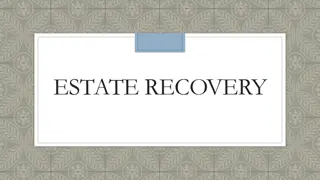Understanding Unshared Realities in Mental Health Recovery
Exploring the limitations of the illness model in mental health recovery, this content delves into the importance of acknowledging trauma, adversity, and social constructions in psychosis. It discusses the interplay between Emotion Mind and Reasonable Mind, emphasizing the need to validate experiences and emotions while embracing uncertainty. The concept of Shared and Unshared reality is highlighted, along with practical strategies to navigate these different realms to empower individuals in taking control of their mental health journey.
Download Presentation

Please find below an Image/Link to download the presentation.
The content on the website is provided AS IS for your information and personal use only. It may not be sold, licensed, or shared on other websites without obtaining consent from the author. Download presentation by click this link. If you encounter any issues during the download, it is possible that the publisher has removed the file from their server.
E N D
Presentation Transcript
Isabel Clarke Consultant Clinical Psychologist
The illness model has the virtues of certainty and protectiveness BUT Inadequate reflection of what is happening Leaves out the universality of the other way of knowing Leaves out or marginalizes the effects of life events, trauma and adversity It does not encourage psychotherapeutic approaches only marginally relevant. It is damaging to mental health recovery.
Biological v. Social constructions of psychosis: Read, Mosher & Bentall 2004 Role of Trauma and adversity e.g. Varese et al meta-analysis 2012 The self = work in progress Social Rank Theory (Gilbert 1992, Gilbert & Allan 1998). Sealing over effect on Recovery Brett, Heriot-Maitland, Peters et al - effect of how experiences are construed. Social messages epidemiological research. Meaning The Hearing Voices approach
When Emotion Mind/Implicational does not mesh properly with Reasonable Mind/Propositional A different quality of experience results Anomalous experiences are accessible The everyday world becomes less important, less graspable Might be frightening and disorienting; might be fine in the short term A problem when the person becomes stuck This is a universal potential given the right conditions
REASONABLE MIND SHARED REALITY EMOTION MIND UNSHARED REALITY WISE MIND In touch with both Emotion Mind Memory Reasonable Mind Memory IN THE PRESENT IN CONTROL
Validate the experience as their experience Validate the emotion (as opposed to the story ) Sit lightly to explanations all explanations, including medical and CBT ones! Model sitting with uncertainty, recognizing mystery Shared and Unshared reality a way of talking about this Helping the person to take control of their unshared reality is key how to close off openness to invasion from within or without
Introduces and normalizes Unshared Reality Balance between vulnerability and potential positive side of high schizotypy Practical ways to manage the threshold between the two 2 realities Motivation to use coping to do this - counter giving up and opting out Individual formulation based on coping strategy model for some
Acknowledging that psychosis feels different Normalising the difference in quality of experience as well as the continuity Reference Romme & Escher research Identifying and exploring pros and cons of shared and unshared reality Sensitivity and openness to anomalous experience continuum with normality: Gordon Claridge s Schizotypy research. Positive side as well as vulnerability creativity, spirituality effect on self esteem
Ordinary Clear limits Access to full memory and learning Precise meanings available Separation between people Clear sense of self Emotions moderated and grounded A logic of Either/Or Supernatural Unbounded Access to propositional knowledge/memory is patchy Suffused with meaning or meaningless Self: lost in the whole or supremely important Emotions: swing between extremes or absent A logic of Both/And
Brainstorm the factors leading to vulnerability Lack of sleep, food, stress, isolation Pressure of events life transitions Effect of past trauma and adversity Drugs, alcohol Spiritual practice with vulnerability/to excess Choice you can take charge you do not have to shut it down completely Motivation to use coping strategies in order to take charge
Level of Arousal High Arousal - stress Ordinary, alert, concentrated, state of arousal. Low arousal: hypnagogic; attention drifting etc.
Shared and Non-shared Reality emotion mind or open to other ways of experiencing reasonable mind wise Mind in touch With both Ordinary thinking Non-shared reality Shared reality. in the present in control Ways of coping suggested by this approach management of arousal and distraction.
Motivation to take charge David Bowie e.g. Arousal Management up and down Grounding Mindfulness - Haddock research on Focusing and Distraction. How do people make sense of their experiences? Discussion of different ways of making sense of them. Clue: what was happening when they first started? Mike Jackson s Problem Solving idea Positive potential sketched in
Aim: To bring yourself 100% into the present, where you are in control. Exercise: Take your attention away from your thoughts, away from your head and into your body. Awareness of body Notice what it feels like to be a body sitting in a chair Notice your weight on the chair Notice how your back feels against the chair Notice all the things you can feel Things that normally our mind does not notice because they are not interesting
As this approach represents a new normalisation, it can greatly aid the therapeutic alliance Prepared to start from wherever the individual is Their experience is taken seriously and valued Encouragement to join the shared world, while respecting their wish to retain access to the unshared (if wanted). Risk and detention. Appreciation of the team s perspective people concerned about them Their responsibility to manage those concerns.
Formulation Template Past: abuse, trauma etc. Try to escape from the emotion by avoidance, self harm, unshared reality etc. Recent triggering event Feel better short term Another maintaining cycle feeding theemotion Horrible Feeling Bad longer term consequences. Aversive emotion worse.
Approach with caution based on an understanding of the States of Mind diagram Exploring the emotion Might be accessible (fear in paranoia) Might be masked (psychosis as escape from intolerable emotion) caution needed The past might need to be vague normalize its effect on the present Their coping strategies normalized what gets the person by but keeps them stuck
THE PAST RECENT TRIGGER Body reacts to threat: Intrusive thoughts Being in crowds, busy places: Body reacts to threat FEAR THREAT! Hears voices Escapes from thoughts By slipping into unshared world More tension, sweaty, heart races Unrealistic, worse, fears Withdraw, hide away Or Fight, become aggressive
Arousal management Grounding mindfulness Mindfulness of unusual experiences/unshared beliefs takes courage Fear and avoidance Facing that it is unshared e.g. when grandiose Facing emotion - DBT skills Self Compassion Relationship management
There to offer a more hopeful, alternative, perspective while stressing the role of NHS to manage risk Small, unfunded, UK charity Website with email contact Supportive, validating responses Team of rota responders given training Awareness raising events and conferences A few local groups Ambitions to do more (e.g. Phone response)
Empathise with what they are going through (might be a relative, friend or other supporter) Normalize others have experienced the same (majority of SCN responders have own crisis) Hopeful in retrospect a transformative experience for many, if difficult while in the midst of it. Practical suggestions (next slide) Any suggestion of risk strongly encourage contacting NHS, taking medication as advised etc, while acknowledging they might be reluctant. No outright advice or therapy recommendations
Grounding when the experience is overwhelming. Grounding activity. Grounding food. Sleep Mindfulness activity in the now Importance of support Maintain ordinary relationships even when this feels irrelevant Managing arousal breathing control to reduce arousal and manage fear Mindful activity in the present to prevent it slipping. Moderate spiritual practice Avoid substances
isabel@scispirit.com Clarke, I. (Ed.) (2010) Psychosis and Spirituality: consolidating the new paradigm. Chichester: Wiley Clarke, I. ( 2008) Madness, Mystery and the Survival of God. Winchester:'O'Books. Clarke, I. & Wilson, H.Eds. (2008) Cognitive Behaviour Therapy for Acute Inpatient Mental Health Units; working with clients, staff and the milieu. London: Routledge. Wilson, H, Clarke, I & Phillips,R., (2009) Evaluation of an Inpatient Group CBT for Psychosis Program Designed to Increase Effective Coping and Address the Stigma of Diagnosis Psychosis. http://www.isabelclarke.org/clinical/icspsychosis.shtml Clarke, I. (2013) Spirituality: a new way into understanding psychosis. In E.M.J. Morris, L.C.Johns and J.E. Oliver eds. Acceptance and Commitment Therapy and Mindfulness for Psychosis. Chichester: Wiley-Blackwell, p. 160-168. www.isabelclarke.org www.SpiritualCrisisNetwork.org.uk
